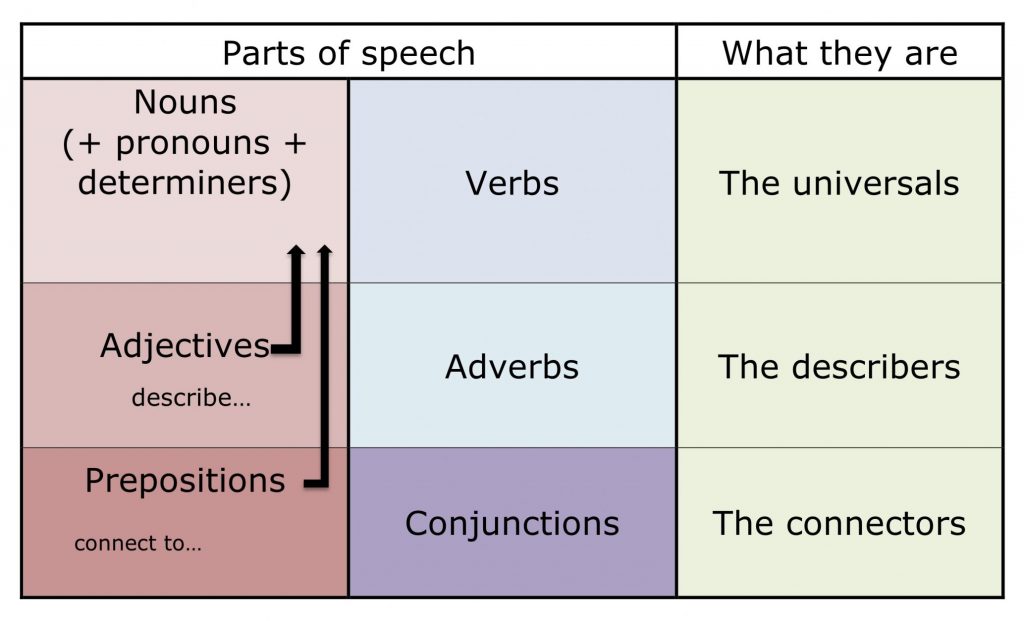Language Arts with Lyn Stone (St Monica's Wodonga)
The Lexicon: A Busy Town
Though teaching parts of speech in depth has somewhat fallen out of favour in schools, there is no getting away from the fact that words fall into categories. Teaching the names of and expectations around these categories helps teachers establish useful meta-language with their students, so that instruction, correction and guidance draws on a common and clear set of terms.
The parts of speech, e.g. nouns, verbs, adjectives, adverbs and so on, interact with one another to form phrases and sentences.
One way to look at it, is that words are like citizens of a town. They all have jobs and relationships and behave in certain ways according to rules. Those rules differ from town to town, just like the rules differ between languages, even though the word categories remain the same. For instance, in English, a verb usually precedes its object: The cat sat on the mat, as opposed to *The cat on the mat sat.
A sentence or thought is deemed complete only if it contains a noun and a verb. That is why these two parts of speech are taught most successfully. They are universal to language, in that when humans communicate, at the bare minimum, they talk about things and they talk about what those things do, are or have.
To extend the town analogy further, nouns are like a royal family. They have servants who are used exclusively to perform duties for them.
Their fuel is the verbs. Verbs help nouns to express their state of being, what they’re doing and what they have. Verbs can be moulded to suit the time these things take place (tense) and to even agree with which noun they’re fuelling (agreement).
Nouns have servants whose job it is to communicate more about them. They’re like PR consultants, always adding colour and depth to them. Those are the adjectives.
There is another category of words also involved in modifying or describing the other parts of speech. Those are the adverbs.
Nouns also have servants whose job it is to connect them to all the other citizens of the town. Those are the prepositions.
There is another category of words also involved in connecting, but they can connect any of the other parts of speech. Those are the conjunctions.
So in summary, there are three main categories:
The universals (nouns and verbs)
The describers (adjectives and adverbs)
The connectors (prepositions and conjunctions)
The table below is a visual guide to this idea:

Grammar and Syntax Worksheet
"*" indicates required fields